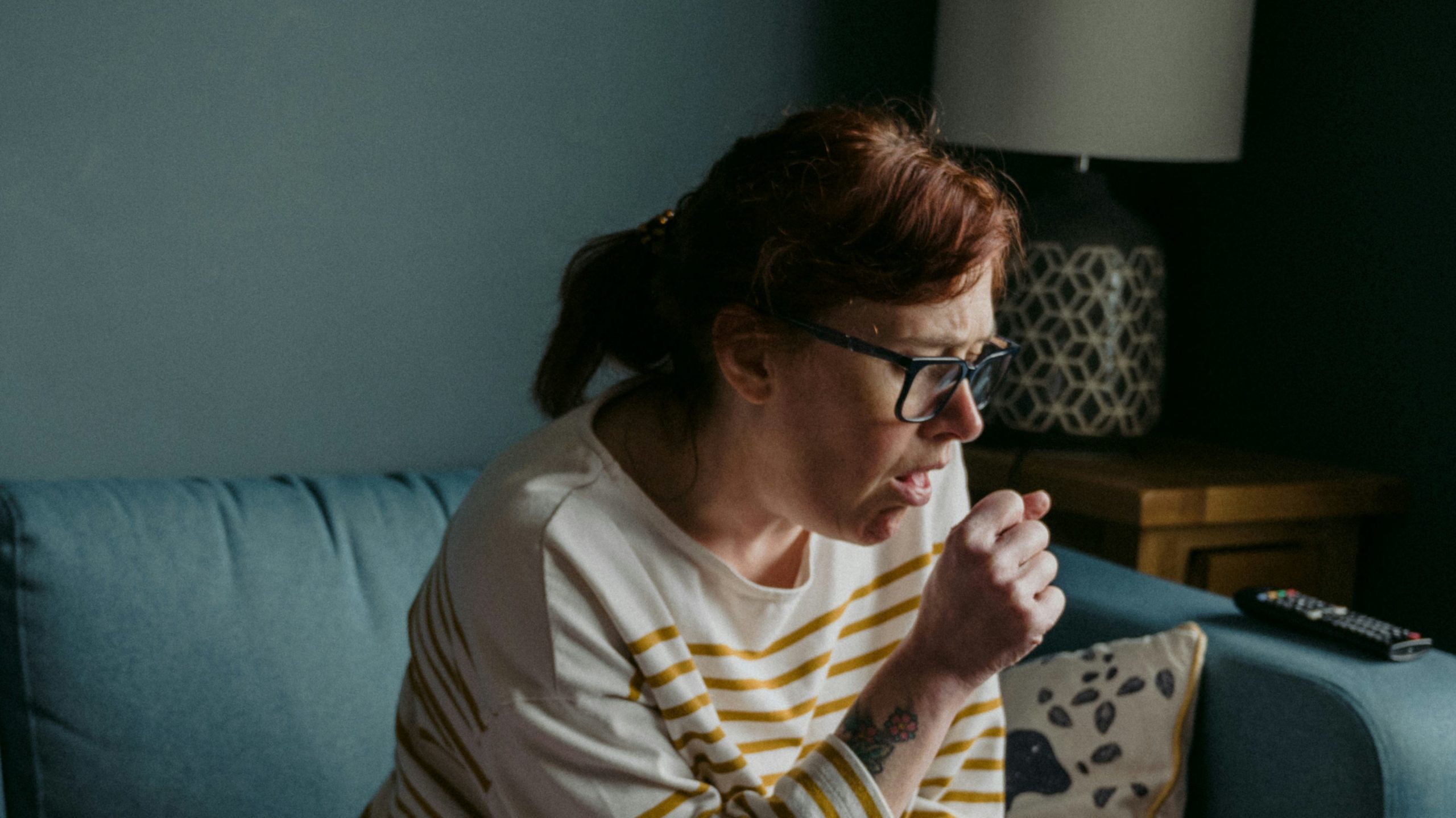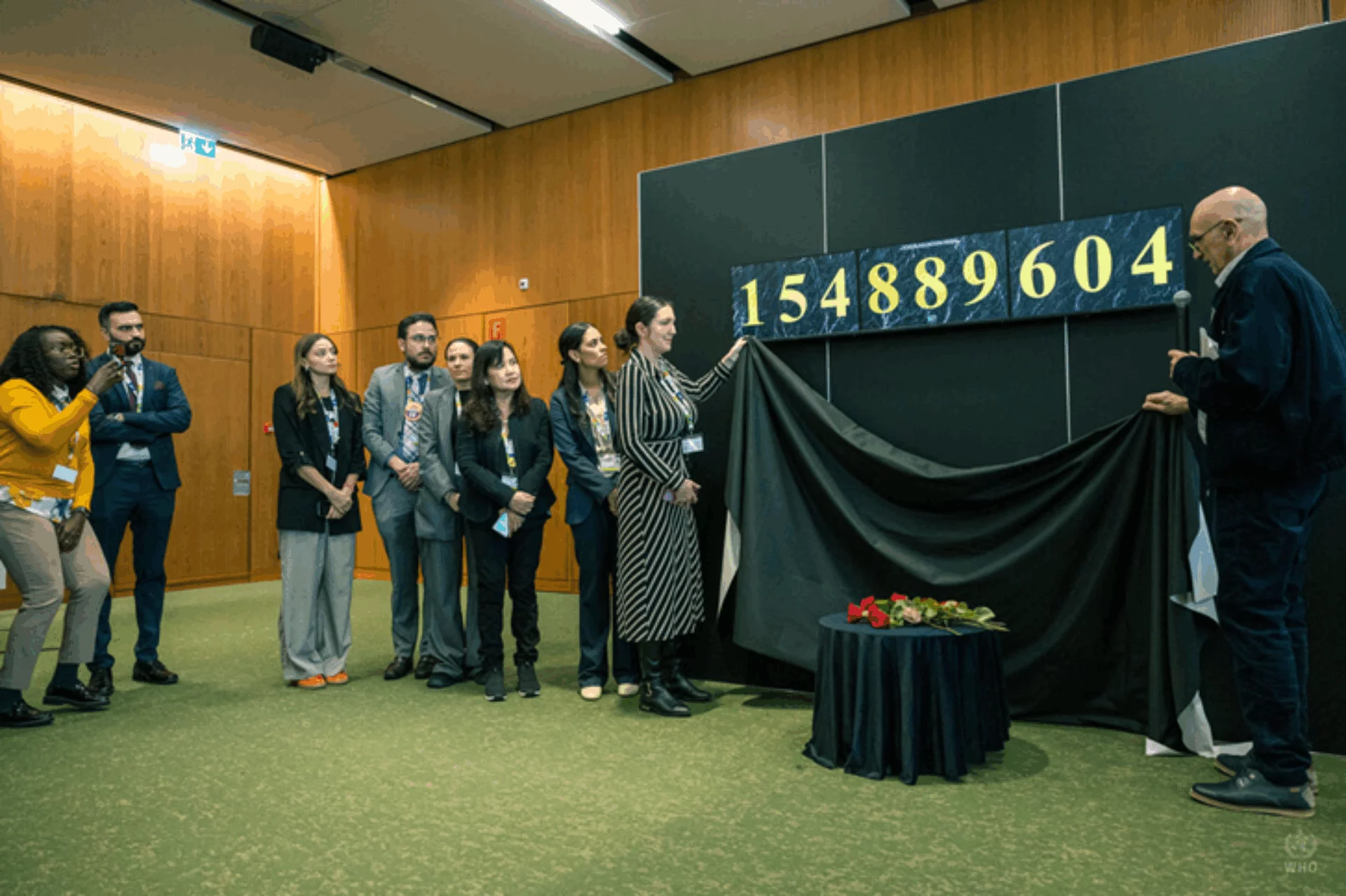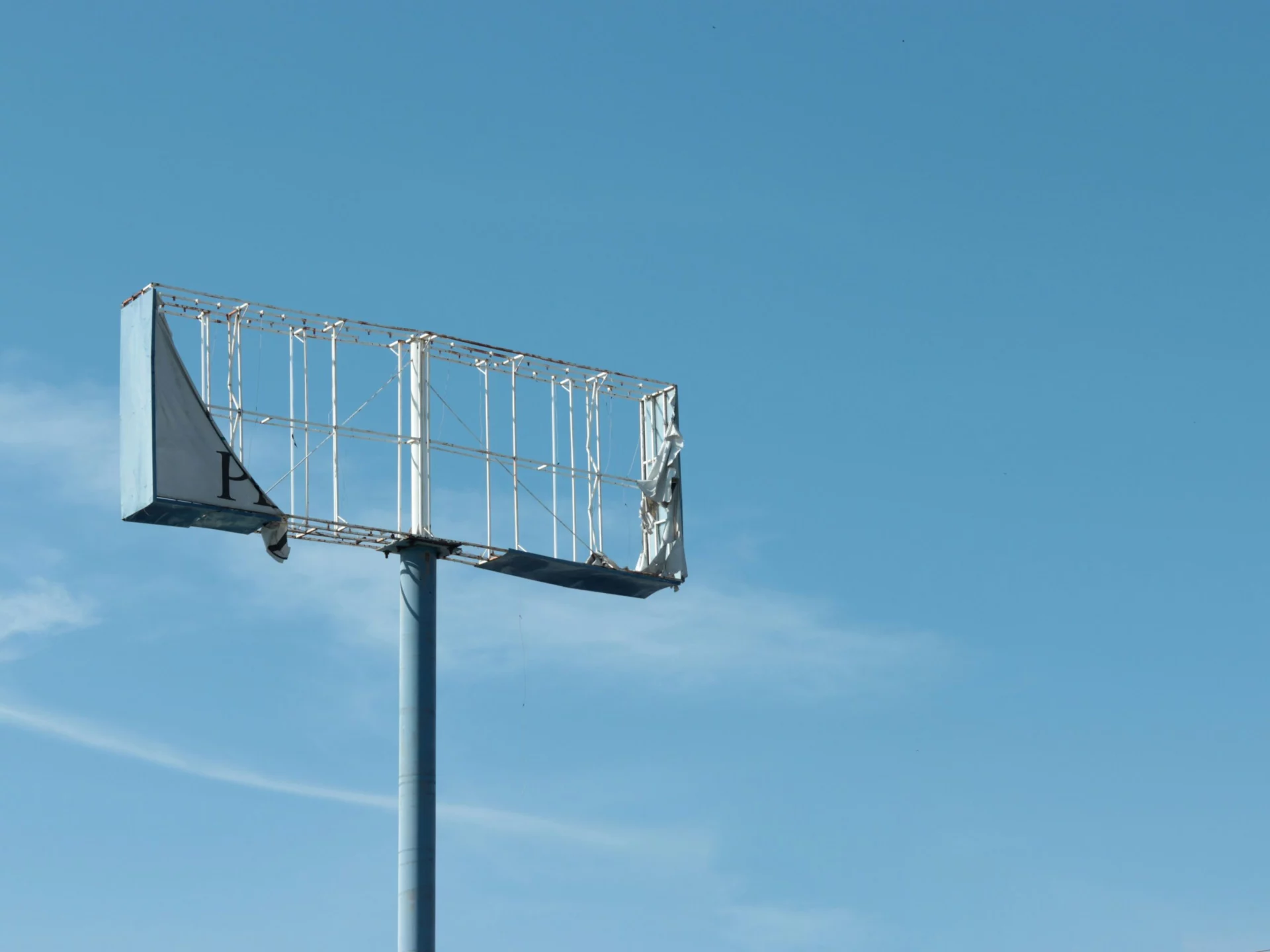My neighbor's smoke is entering my apartment. What should I do?
OxyRomandie regularly receives requests for help from people, often distraught, who are suffering from heavy passive smoking in their apartment, with smoke coming from a neighboring apartment. Most of the time, they find themselves in an inextricable situation, faced with heavy-smoking neighbors who insist on their right to smoke in their own homes, without the slightest concern that this is polluting the whole building in which they live, and with a property management company that does its utmost to ignore the problem, and, when this is no longer possible, downplays it and denies the health consequences.

Here's a message we received from a Geneva resident:
"I would be grateful if you could let me know if we can take action against neighbors who smoke incessantly, day and night (tobacco and other substances), knowing that our board is completely indifferent to this kind of problem. Smoking while we sleep is the most inconvenient, waking us up and causing coughing during the day."
On behalf of OxyRomandie, our president sent the following reply to this person:
"I fully understand your situation, which is unfortunately by no means an isolated one in Geneva [editor's note: and in French-speaking Switzerland]. I'd like to correct you on one point: you say that the smoke bothers you. If that were all it was, you'd simply be dealing with a question of good neighborliness, which could be settled amicably, with each party making a concession to the other. Without any desire on my part to aggravate the situation, I feel obliged to inform you that the tobacco smoke you breathe in your apartment is not only unpleasant: it is in fact a notorious toxic agent, classified by the WHO as a proven carcinogen(1,2).
This exposure to smoke poses a real threat to your health - one of its main consequences being a deterioration in your cardiovascular health. Children are very sensitive to the presence of tobacco smoke in apartment buildings(3) and are particularly vulnerable to it, from early childhood through adolescence.(4,5,6) Exposure to passive smoke is also a proven cause of cot death(7).
It is now clearly established that tobacco smoke produces its harmful effects even at very low doses.(8) It can be dangerous without even being detectable by our olfactory system, as some of its most dangerous components are odorless. The guidelines on Article 8 of the WHO Framework Convention on Tobacco Control (an international treaty ratified to date by 178 countries) state this very clearly: No level of exposure to second-hand smoke is safe.(9) If you're coughing because of the smoke you breathe in during the night in your bedroom, it's because you're exposed to very large quantities of smoke. So you're quite right to be concerned, and to do everything you can to put a stop to it - it's your health that's at stake.
Unfortunately, property management companies in Geneva (and everywhere else in French-speaking Switzerland) are lining up to prevent this problem from being recognized. They find themselves - perhaps in spite of themselves - accomplices of the tobacco companies, who for a very long time denied the deleterious nature of passive smoking, to the point of being condemned on several occasions by the courts, notably in the USA, and who continue to this day to deny it or minimize its consequences on health.
While they recognize the pollution caused in apartment buildings by the indiscriminate smoking of smoking tenants, they fear being overwhelmed by the demands of thousands of tenants claiming their (elementary) right to an apartment with clean air that doesn't endanger their health. This is a gigantic Pandora's box, so they do everything to dissuade tenants from lifting the lid. This involves (feigned) ignorance of the problem, minimization, denial, deliberate inaction and every conceivable delaying tactic, stigmatization of victimized tenants who are accused of intolerance and prohibitionism, and even threats of non-renewal of the lease, threats which some housing authorities do not hesitate to carry out(10).
What can we advise you to do in such a situation? Our first piece of advice is to talk to your neighbor, explaining the problem and courteously asking him to refrain from smoking in his apartment. Unfortunately, for a variety of reasons, this initial step often fails to produce the desired effect: on the one hand, the power of addiction means that even if your neighbor has the best of intentions and commits himself to stopping or restricting smoking in his apartment, experience shows that there is little chance of him succeeding, and that after a few more or less successful attempts, he is likely to fall back into his bad habits; your neighbor may also be convinced that it's his or her most elementary right to smoke in his or her own home as he or she sees fit - in which case, he or she will perceive your request as an infringement of his or her personal freedom; finally, your neighbor may still think that the problem isn't his or her smoking, but a leak in the building's interior, and that it's therefore not his or her fault.
This first step is important, but we assume that you're asking us for advice precisely because, in your case, it didn't work. You then need to establish objectively and indisputably that you are exposed to passive smoke in your apartment.
There are several ways of doing this. You can get in touch with Cipret-Geneva,(11) which can advise you on the means available. You can, for example, have your blood cotinine level measured, which is a reliable indication of your exposure to tobacco smoke, cotinine being a metabolite of nicotine. Cipret-Geneva also has smoke sensors that measure the amount of tobacco smoke entering your home. There is still the possibility of using a fine particle counter - the most harmful - but to do so, you need to have such an instrument. There are specialized companies that can take such measurements for you.
Once you have formally and objectively established that you are exposed to passive smoke, you should write to the housing authority, informing them of the situation and requesting that they put a stop to this air pollution in your apartment. The Régie must guarantee that the air in your apartment is healthy and does not endanger your health. If you don't have a home that meets these conditions, it's up to them to take action to ensure that the air in your apartment is healthy again. It's not up to you to confront your neighbor who smokes - it would be too easy for the Régie to pass the buck to the tenants, exploiting the resulting neighborhood tensions to avoid its responsibilities. If your upstairs neighbor demolishes the building's elevator, it's not up to you to sue him to repair the damage he's caused - that's up to the building's management or owner. The same applies to the air quality in your apartment.
If the property management company turns a deaf ear and does not react, or denies responsibility, you should insist on taking the matter to the leasing tribunal. You can ask Asloca for help - see, for example, the recommendations it has published jointly with Cipret-Vaud.(12) But don't be under too many illusions - Asloca tends to take the side of smokers, giving precedence to their "right" to indulge their addiction at home over the right of neighboring tenants to breathe healthy air in their apartment.
The article in Le Matin entitled Interdiction de fumer chez soi! (13) is revealing: in it, Asloca takes a stand against the "smoke-free building" concept, based on the idea that tenants commit themselves by lease not to smoke - a concept that works very well in other countries and corresponds to a real demand.(14) Asloca finds itself in a situation of objective connivance with real estate agents on this issue. At best, it will come out in favor of a pseudo-solution such as a rent reduction, which naturally does not solve the main problem, namely the pollution of the air in your apartment by tobacco smoke and its health consequences.(15)
When it's clear that the property management company will do nothing to resolve the problem, you'll need to get a lawyer and start proceedings in the leasing court to assert your right to healthy air in your apartment. If you have clearly established that the air in your apartment is endangering your health (all you need to do is find detectable levels of smoke in your apartment - science has amply demonstrated the harmfulness of passive smoke), it is not unrealistic to hope to win your case in such proceedings.(16) You can also stop paying your rent by depositing it in an escrow account, but all this must be done by the book, which is why you need to be assisted by a lawyer.
This seems obvious, but we're still waiting for a tenant to be determined enough to go through with such a procedure. Many have given in to blackmail by their management to break the lease, and most of the other cases brought to our attention ended with the smoke-exposed tenants moving out.
You'll find that my answer isn't very encouraging, but it's the reality, which we can only deplore. One possible solution would be for tenants - and there are many of them - who suffer from the same type of tobacco smoke poisoning in their apartments to join forces and jointly finance the legal proceedings of one of them, which could then set a precedent and open Pandora's box. Our association, OxyRomandie, would be ready to support such a movement, but our resources, both financial and in terms of personnel, do not currently allow us to launch or organize it. So it's up to you.
Pascal Diethelm, President of OxyRomandie "
References and notes
(1) Communiqué de presse No. 141, Centre international de recherche sur le cancer, 19 juin 2002
(2) C’est officiel : la fumée passive fait partie des substances cancérogènes les plus dangereuses!
(3) Tobacco-Smoke Exposure in Children Who Live in Multiunit Housing. Wilson KM, Klein JD, Blumkin AK, et al. Pediatrics, Vol. 127 No. 1 January 1, 2011, pp. 85-92
(4) Lésions vasculaires dues à la fumée passive dans l’enfance, communiqué de l’AT publié sur notre ancien site le 25 novembre 2002
(5) La fumée passive aggrave les infections des voies respiratoires chez le nourrisson, AT Switzerland, 21.03.2005
(6) Le tabagisme passif a une incidence sur le développement neurologique des bébés
(7) Sudden Infant Death Syndrome. Office on Smoking and Health (US). The Health Consequences of Involuntary Exposure to Tobacco Smoke: A Report of the Surgeon General. Atlanta (GA): Centers for Disease Control and Prevention (US); 2006. 5, Reproductive and Developmental Effects from Exposure to Secondhand Smoke.
(8) There is No Risk-Free Level of Exposure to Secondhand Smoke. Office on Smoking and Health (US). The Health Consequences of Involuntary Exposure to Tobacco Smoke: A Report of the Surgeon General. Atlanta (GA): Centers for Disease Control and Prevention (US); 2006. 5, Reproductive and Developmental Effects from Exposure to Secondhand Smoke.
(10) The picture we have painted may seem rather gloomy, but it corresponds to what we have been told. There are probably a few examples of buildings where things have gone well, and where the smoke has been eliminated to the satisfaction of all concerned. If you know of any such cases, please let us know - we'll be happy to publicize them.
(11) Similar organizations exist in other cantons : Cipret-Fribourg, Cipret-Valais, Cipret-Vaud et Vivre sans fumer à Neuchâtel.
(12) Que faire pour se protéger de la fumée s’infiltrant dans votre logement ? Communiqué Asloca – Cipret-Vaud, février 2007
(13) Interdiction de fumer chez soi! Le Matin, 23 octobre 2011
(14) Smoke free multi-unit housing – A guide for owners, tenants, agents, authorities and governments. ASH Australia, 2011
(15) Lutter contre la fumée du voisin. Le Matin Bleu, 31 janvier 2007
(16) In a precedent-setting decision (Olesia Koretski c. Sandra Ann Fowler, Cour du Québec, chambre civile, 2008 QCCQ 2534, 17 avrl 2008), the Quebec court ruled as follows:
- If the legislator has thus prohibited smoking in the public sphere, it is because he recognizes the risks that exposure to tobacco smoke poses to non-smokers.
- No law formally prohibits smoking in the home. However, the smoker's right to privacy is limited by the right of the other occupants of a building to peaceful enjoyment of their dwelling.
- This peaceful enjoyment includes the right to be free from the negative effects of smoke.
It is not unrealistic to hope that the Swiss Federal Court will come to the same conclusion, which follows from obvious logic. Its judges have already made it quite clear that there is no fundamental right to smoke. A smoking ban, even in a private place, does not therefore crucially infringe personal freedom: the right to health of third parties is a more important consideration than the right to smoke.
Other actualities
« Death Clock » : remembering those who have died from smoking

ʺFor adults onlyʺ: Young people targeted by the tobacco industry - New episode !

Our dossier - Voluntary measures of the tobacco industry

Jacques Cornuz: “When the tobacco industry opposes preventive measures, it is a clear sign that they are effective.”

Prévention du tabagisme en Suisse : 60 ans de progrès graduels (1964-2024)

L’enfumage arc-en-ciel : l’industrie du tabac, faux allié des personnes LGBTIQ+

OxySuisse on M Le Média to discuss the topic of “Sponsorship and Philanthropy”

The tobacco industry's self-interested generosity in Switzerland
